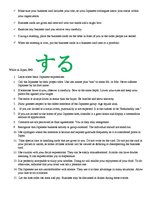Japan is the land of peace and harmony that continues to evolve in a positive unification of tradition and modernization. If your organization is planning to conduct business with Japan, potential success depends upon an understanding of this culturally influenced protocol.
Harmony is the key value in Japanese society.
It is the guiding philosophy for the Japanese in family and business settings and in society as a whole.
Japanese children are taught to act harmoniously and cooperatively with others.
The Japanese educational system emphasizes the interdependence of all people, and Japanese children are not raised to be independent but rather to work together.
This need for harmonious relationships between people is reflected much in Japanese behavior.
They place great emphasis on politeness, personal responsibility and working together for the universal, rather than the individual, good.
They present facts that might be disagreeable in a gentle and indirect fashion.
They see working in harmony as the crucial ingredient for working productively.
The Japanese and 'Face'
Saving face is crucial in Japanese society.
The Japanese believe that turning down someone's request causes embarrassment and loss of face to the other person. If the request cannot be agreed to, they will say, 'it's inconvenient' or 'it's under consideration'.
Face is a mark of personal dignity and means having high status with one's peers.…






























